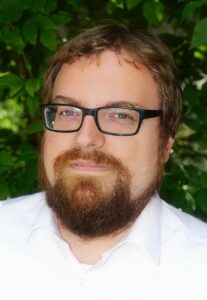Start-up Funding Project – High Throughput Engineering of a Lead-Free Ternary Piezoelectric System for Energy-Harvesting Devices
Growing environmental and health concerns restrict the use of toxic elements, such as lead, in electronics and electrical components. While lead-free materials for energy conversion systems potentially match electromechanical properties of their lead-containing counterparts, other application critical properties such as thermal stability, defect chemistry, and mechanical strength still provide room for improvement. An approach to this challenge is phase boundary engineering, combining different material systems with well-known functional properties into a solid solution specifically tailored to the application.
Despite the potential impact of binary and ternary ferroelectric material systems on energy conversion applications, the data availability of the compositional dependent crystal structure and electromechanical properties is limited. This is mainly due to the large compositional space that must be investigated. Processing ceramic materials is a time-intensive procedure that requires numerous steps, including powder weighing, milling, thermal treatment, and post-processing. In addition, due to the various influences, e.g., raw material purity and polymorph, crucible materials and purity, and thermal gradients in sintering ovens, amongst others, comparison between different research groups can be difficult or in some cases outright impossible.
Therefore, a powder-based high throughput approach with optimized workflows has been established to provide for database engineering and finding new compositions. A key part of the high throughput system is its flexibility and adaptability to different solid-state process routes. The current research focus lies on perovskite based solar cell materials and the ternary BF-BKT-BT system for energy conversion applications due to its high polarization and temperature stability.
 |
Dr. Udo Eckstein Institute of Glas and Ceramics Materials Science Department Friedrich-Alexander-Universität Erlangen-Nürnberg udo.eckstein@fau.de |
